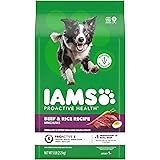Bringing a new kitten into your home is an exciting time, filled with cuddles and playful antics, and it’s important to consider insurance for your new feline. As a responsible pet parent, ensuring your kitten’s health is paramount. That’s where kitten insurance comes in, providing a safety net for unexpected veterinary expenses. With rising vet bills, a comprehensive pet insurance plan can offer peace of mind, knowing that your furry friend can receive the best veterinary care without breaking the bank. From accidents and illnesses to routine care, understanding the ins and outs of kitten insurance is crucial for every pet owner.
Understanding Kitten Insurance
Kitten insurance, also known as cat insurance or pet health insurance, is designed to help offset the costs associated with veterinary care for your kitten. Just like human health insurance, pet insurance plans offer reimbursement for eligible vet bills resulting from accidents, illnesses, and sometimes even wellness and routine care. By paying a monthly premium, pet parents can access insurance coverage that helps alleviate the financial burden of unexpected veterinary expenses.
What is Kitten Insurance?
Kitten insurance is a type of pet insurance specifically tailored for kittens. These insurance policies are designed to help cover the costs of veterinary care for accidents and illnesses that may arise during a kitten’s early years. Kitten health insurance plans are similar to insurance plans for adult cats, but they often focus on the unique health challenges and needs of young kittens. By enrolling your kitten in an insurance plan, you can ensure access to the best veterinary care for your kitten’s health.
Importance of Pet Insurance for Kittens
Pet insurance for kittens is crucial due to their vulnerability to accidents, illnesses, and various health conditions. Kittens, being curious and playful, are prone to mishaps. Moreover, they are susceptible to various kitten-specific ailments. Obtaining pet insurance early can provide coverage for hereditary conditions that may manifest later in life. With a comprehensive pet insurance policy, you can focus on your kitten’s health without the constant worry of escalating vet bills.
How Kitten Insurance Works
Kitten insurance works by reimbursing pet parents for covered vet bills after they’ve paid a deductible. First, you choose an insurance plan and pay a monthly premium to ensure your kitten has access to necessary medical care. If your kitten experiences an accident or illness requiring veterinary care, you take them to the vet and pay the vet bill upfront. Then, you submit a claim to your pet insurance company, which will reimburse you based on your coverage and deductible. A waiting period is also something to consider, as most insurance providers have a waiting period from when you enroll until the insurance actually kicks in, which can affect your kitten’s access to medical care.
Types of Insurance Plans for Kittens
Comprehensive Kitten Insurance Plans
Comprehensive kitten insurance plans are the gold standard for ensuring your kitten’s health is fully protected. These policies typically cover a wide range of veterinary services, including accidents and illnesses, surgeries, hospitalization, prescription medications, and even some diagnostic tests. This type of plan offers extensive coverage, providing pet parents with peace of mind knowing that most unexpected vet bills will be reimbursed. Enrolling in a comprehensive kitten insurance plan helps ensure that your kitten receives the best veterinary care possible.
Accident vs Illness Coverage
When exploring insurance options for your new kitten, it’s crucial to understand the difference between accident and illness coverage. Accident coverage typically includes injuries sustained from incidents like falls, fractures, or accidental poisoning. Illness coverage, on the other hand, covers conditions such as infections, cancer, or hereditary conditions. Some kitten insurance plans offer accident-only coverage, which is less expensive but provides less comprehensive coverage than a plan that covers both accidents and illnesses. For the best insurance, opting for a plan that covers both is generally recommended.
Wellness Add-Ons and Preventive Care
Many pet insurance companies offer wellness add-ons or preventive care options to their kitten insurance plans. These add-ons typically cover routine care such as vaccinations, deworming, flea and tick prevention, and annual vet visits. While not always included in standard accident and illness coverage, wellness add-ons can help offset the costs of routine veterinary care, making it easier for pet parents to keep their kitten healthy. By investing in these options, pet parents can proactively manage their kitten’s health and well-being, ensuring a happy and healthy life.
Choosing the Best Pet Insurance for Your Kitten
Factors to Consider When Selecting a Plan
Selecting the best pet insurance for your kitten involves several important considerations. Start by evaluating your budget and determining how much you can afford for a monthly premium. Next, consider the deductible and reimbursement options offered by different insurance plans. A lower deductible means higher monthly premiums but less out-of-pocket expenses when you file a claim. It is also vital to understand any waiting period before the coverage becomes effective. Consider pre-existing conditions and whether the coverage will include them.
Top Providers for Kitten Health Insurance
Several pet insurance companies stand out as top providers for kitten health insurance. Healthy Paws is known for its comprehensive coverage and no per-incident or annual maximums. Pets Best offers a variety of coverage options and customizable plans to fit different budgets. The ASPCA® Pet Health Insurance program provides comprehensive coverage with a focus on preventive care. Researching and comparing these and other providers, such as Embrace and Trupanion, can help you find the best kitten insurance plan for your needs. Getting a free quote from multiple providers is recommended.
Pet Parent Reviews and Experiences
One of the best ways to gauge the quality of a kitten insurance plan is by reading pet parent reviews and experiences. These reviews offer insights into the claims process, customer service, and overall satisfaction with the coverage provided by different pet insurance providers. Look for patterns in the feedback. Are pet parents generally happy with the speed of reimbursement? Do they find the coverage to be comprehensive and reliable? Positive reviews can provide confidence in your choice, while negative reviews can help you avoid potential pitfalls. Take the time to research and consider the experiences of other kitten parents when selecting pet insurance providers.
How to Enroll in a Kitten Insurance Plan
Steps to Get Pet Insurance for Kittens
Enrolling your kitten in a pet insurance plan involves several key steps. Start by researching various pet insurance companies and comparing their coverage, policies, and premium costs. Next, get a free quote from a few top providers to gauge potential monthly premium expenses. Ensure you understand the coverage details, including what is covered and what is excluded. Then, complete the application process, providing accurate information about your new kitten’s health history and any pre-existing conditions.
Getting a Free Quote
Obtaining a free quote is an essential part of the enrollment process for a kitten insurance plan. Most pet insurance companies offer online tools to get a quote quickly. You’ll need to provide some basic information about your kitten, such as its breed, age, location, and any known health conditions. Getting a free quote from multiple providers allows you to compare coverage options, deductible amounts, and monthly premium costs. This helps you make an informed decision and choose the best kitten insurance that fits your budget and needs.
Key Information Needed for Enrollment
Enrolling your kitten in a pet insurance policy requires you to provide specific information, including details about any previous wellness care received. This typically includes your kitten’s name, breed, age, and medical history. You will need to provide your contact details and your veterinarian’s information. Furthermore, you will need to select the desired coverage level, deductible, and reimbursement percentage. Having all this information ready before you start the enrollment process ensures a smooth and efficient application, enabling your kitten to get pet insurance quickly.
Understanding Coverage and Reimbursement
What is Covered Under Kitten Insurance?
Kitten insurance policies generally cover a range of veterinary expenses, providing financial support when your kitten experiences an accident or illness. Standard cat insurance coverage often includes diagnostic tests like blood work and X-rays, treatments, surgeries, hospitalizations, and prescription medications. Comprehensive kitten insurance plans may also cover specialist visits and alternative therapies. Some policies offer wellness add-ons, covering routine care such as vaccinations and vet visits. It is important to review the policy details to understand the specifics.
How to File a Claim and Get Reimbursed
Filing a claim with your pet insurance company is a straightforward process. First, take your sick or injured kitten to the veterinarian and pay the vet bill. Then, obtain a copy of the invoice and any relevant medical records. Most pet insurance companies allow you to submit a claim online or via mail. Provide all the necessary information, including your policy number, the date of service, and a detailed description of the veterinary care provided, especially if it relates to wellness care or medical care for your kitten. Once the claim is processed, you will be reimbursed based on your policy’s coverage terms.
Dealing with Denied Claims
If your claim for your kitten is denied by the pet insurance company, it’s essential to understand the reason behind the denial. Common reasons for claim denials include pre-existing conditions, policy exclusions, or insufficient documentation, which can be frustrating for kitten parents. Review your policy carefully to determine if the denied service is indeed excluded. If you believe the denial is in error, you have the right to appeal the decision. Gather any additional information or documentation that supports your case and submit it to the insurance company. Seeking clarification and appealing a denied claim can sometimes result in a favorable outcome.
Frequently Asked Questions about Kitten Insurance
Common Concerns for Pet Parents
Many pet parents wonder if kitten insurance is truly worth the cost. The reality is that unexpected vet bills can quickly add up, especially with a new kitten. Accidents and illnesses are common in young kittens, and even routine vet visits can strain a budget. Another concern is whether pre-existing conditions will be covered. While most insurance plans don’t cover pre-existing conditions, it’s essential to understand the specifics of each policy. By investing in kitten insurance, you are safeguarding your kitten’s health and your financial stability.
Misconceptions about Cat Insurance
One common misconception is that cat insurance is too expensive, especially when considering the potential costs of medical care for sick cats. While the monthly premium may seem like an added expense, it’s crucial to consider the potential cost of a major accident or illness. Another misconception is that cat insurance only covers major surgeries. In reality, many kitten insurance plans cover a wide range of veterinary care, including diagnostic tests, prescription medications, and specialist visits. Wellness add-ons can even cover routine care such as vaccinations. Understanding the full scope of coverage can help pet parents make informed decisions.
When to Get Insurance for My Kitten
The best time to get pet insurance for your kitten is as soon as possible. Enrolling early ensures that your kitten is covered before any unexpected health issues arise. Many pet insurance companies have a waiting period before the coverage becomes effective, so it’s wise to enroll your kitten while they’re young and healthy. Furthermore, some policies may not cover conditions that develop before enrollment, making early coverage essential. Securing insurance for your kitten early provides peace of mind and protects against future vet bills.
Consider MetLife Pet Insurance for Kittens
When searching for the best pet insurance for your kitten, consider MetLife Pet Insurance. MetLife offers comprehensive kitten insurance plans that provide coverage for a wide range of accidents, illnesses, and even some preventive care. With customizable deductible options and reimbursement percentages, you can find a plan that fits your budget and needs. MetLife also boasts a user-friendly claims process and excellent customer service, making it a reliable choice for pet parents. By choosing MetLife Pet Insurance, you’re investing in your kitten’s health and well-being.
Protect your kitten’s health—and your wallet—with a cat insurance plan
Investing in a cat insurance plan is a proactive way to protect both your kitten’s health and your financial stability. With rising veterinary costs, having kitten insurance can provide a safety net for unexpected vet bills. A comprehensive kitten insurance plan ensures that your new kitten receives the best veterinary care without causing financial strain. Whether it’s an accident or illness, routine care, or hereditary conditions, a well-chosen pet insurance plan can help reimburse you for eligible expenses. Don’t wait until it’s too late; secure your kitten’s health today with a reliable pet insurance policy.




























































